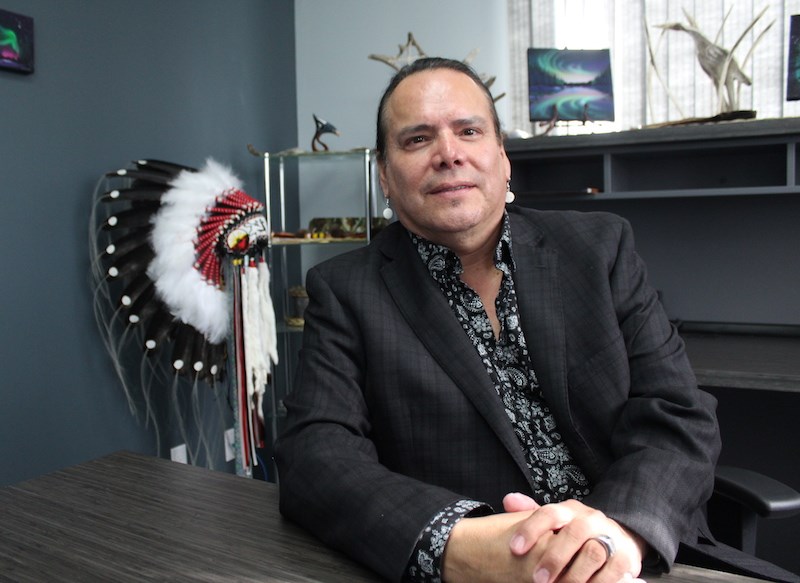While his introductory year as Manitoba Keewatinowi Okimakanak (MKO) grand chief was full of challenges, Garrison Settee said his attachment to the north is stronger now more than ever.
In a recent interview with the Thompson Citizen, Settee talked about the trips he’s made to the various communities under MKO jurisdiction and how that’s deepened his understanding of the issues plaguing Indigenous people in this part of the province.
“Health is probably the biggest issue that’s on their minds,” he said Aug. 21. “Transportation is not accommodating their needs as elders and the system needs to be changed and it needs to be changed drastically.”
After talking to residents of Tadoule Lake, Settee describes the process they have to go through to get proper care as “archaic” and something that should not happen in this day and age.
“You fly to Thompson, you take a 14-hour bus ride to Winnipeg … you go through the ordeal of finding a receiving home, and then you get to see a doctor for five minutes and then you reverse that process. It takes three or four days.”
Another file that’s been at the forefront of Settee’s activism is his ongoing critique of Child and Family Services (CFS) and their practice of taking vulnerable Indigenous youth away from their families and communities.
According to the grand chief, this process is foreign to the ancient practices of Indigenous people and only serves to further traumatize the young.
Settee says his group is attempting to change Manitoba’s child welfare system so that these communities have more autonomy to resolve these kinds of affairs internally.
“In our First Nations, we have to have the capacity to be able to keep children in the home,” he said. “We have to have systems in place where they are safe and where family members are involved. And I think moving siblings away from each other is not the solution. They didn’t do anything wrong. They don’t deserve that kind of punishment.”
Part of Settee’s ongoing campaign to embed himself in the north involved moving to Thompson in September 2018, less than a month after he was elected MKO grand chief.
Even though past grand chiefs have worked out of Winnipeg, Settee thought it was important to set up shop in the Hub of the North so that he could connect with residents and city officials more directly.
This includes attending various community events like National Indigenous Peoples Day, R.D. Parker Collegiate graduation and the fifth-annual Leslie W. Turner Traditional Powwow.
Settee said the absolute highlight of his first year as grand chief was organizing a fall feast at the Bill Comaskey Wellness Centre that involved Indigenous communities from all over the north.
However, Settee admitted that all this travel and advocacy doesn’t leave him a lot of free time and puts everyday responsibilities on the backburner.
“Sometimes you forget to eat … sometimes you don’t even have time to do laundry,” he said. “Your personal life is pretty well non-existent because it’s so demanding, but that’s the sacrifice that needs to be made.”
In the remaining two years of his term, Settee said he wants to keep connecting with Indigenous residents in the north to let them know that their interests are being represented.
“That’s the reason why I ran, first and foremost, is that the people in the remote north have a sense some detachment from the organization and I wanted to re-engage with those communities,” he said. “And I pray for strength and I pray for health so that I can continue to do that.”
Before becoming MKO grand chief, Settee served as the chief of Pimicikamak Cree Nation, his home, from 2008 to 2013.
He also taught First Nation Studies and First Nation Law at the Grade 12 level for many years, and introduced his students to the critical issues pertaining to Indigenous rights and treaties.




